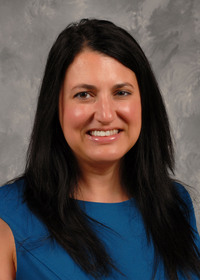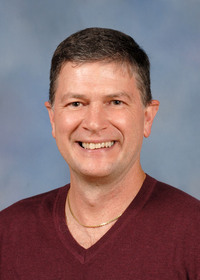Information Possibly Outdated
The information presented on this page was originally released on April 26, 1999. It may not be outdated, but please search our site for more current information. If you plan to quote or reference this information in a publication, please check with the Extension specialist or author before proceeding.
Center In Place To Promote Rural South
MISSISSIPPI STATE -- A 25-year-old center uses its resources to share research and information important in keeping rural development issues a top priority in the South.
The Southern Rural Development Center, headquartered at Mississippi State University, works with 13 states and two territories. It serves Alabama, Arkansas, Florida, Georgia, Kentucky, Louisiana, Mississippi, North Carolina, Oklahoma, Puerto Rico, South Carolina, Tennessee, Texas, Virgin Islands and Virginia.
"The SRDC seeks to tap the talents of the region's land-grant universities to help address important rural development issues," said SRDC director Dr. Bo Beaulieu. "We try to understand the rural South research needs and take steps to get that research conducted. We then make sure that research is delivered for application to the leaders and citizens of the region."
The first priority of the SRDC is to keep the development concerns of the rural South in the spotlight. Once concerns have been identified, the Center develops research to better understand these issues.
Armed with the findings, the SRDC then provides educational programs to communities and citizens to address these issues. It also seeks to inform policy makers of the impacts federal and state policies are having on the rural South.
"We try to provide the most up-to-date information for rural communities to use to develop strategies to address such things as economic development, workforce preparation and strategic planning programs for its citizens. We do this through our links with each land-grant institution's Extension Service," Beaulieu said.
The SRDC coordinated a recent four-state conference for Champion Communities. About 150 representatives gathered from communities in Alabama, Florida, Georgia and South Carolina.
Earl Thompson was mayor of Cuthbert, Ga., when he attended the meeting. He now is the president of the Lower Chattahoochee 4-County Chamber of Commerce.
"We sit here and let things pass us by, like education, and we decided to get out and go after things,"Thompson said. "These four counties don't even have 20,000 people total, but we've learned to pull our resources together."
Knowledge and information gained at the SRDC conference allowed this Champion Community to make even greater strides forward. One county was just awarded a $3 million grant for a rural water system and one of the cities involved was given almost $400,000 for rural health.
"It got the federal government looking our way," Thompson said of the learned strategies.
The SRDC puts the strengths of the southern states to good use across the region. Where one state may not have the resources to find a solution to a rural development issue, the SRDC can identify and recruit people from other universities to help that state accomplish the task.
"At the Center, we use resources efficiently to share this information," Beaulieu said. "If there are some innovative educational programs that have been tested and deal with issues that go beyond a particular state boundary, then we can spotlight that program for use by other states."
Beaulieu said the Agricultural Research, Extension and Education Reform Act, which is the most recent Farm Bill, strongly encourages states to work together to solve problems that impact many of them.
"With this added focus on multi-state issues, the Southern Rural Development Center is in an ideal position to tap its network of people and universities to work as a team in tackling the tough rural development issues challenging the South," Beaulieu said.
The Center's primary audience is the region's land-grant universities as they work to keep these informed of critical rural development issues. Secondary audiences include organizations with significant interest in rural issues, such as state rural development councils, the U.S. Department of Agriculture's Rural Development Offices and community-based grassroots organizations.
The SRDC is one of four multi-state rural development centers organized as a result of the Title V Rural Development Act of 1972. The SRDC is funded by the U.S. Department of Agriculture and joins the Northeast Regional Rural Development Center, the North Central Regional Center for Rural Development and the Western Rural Development Center.





